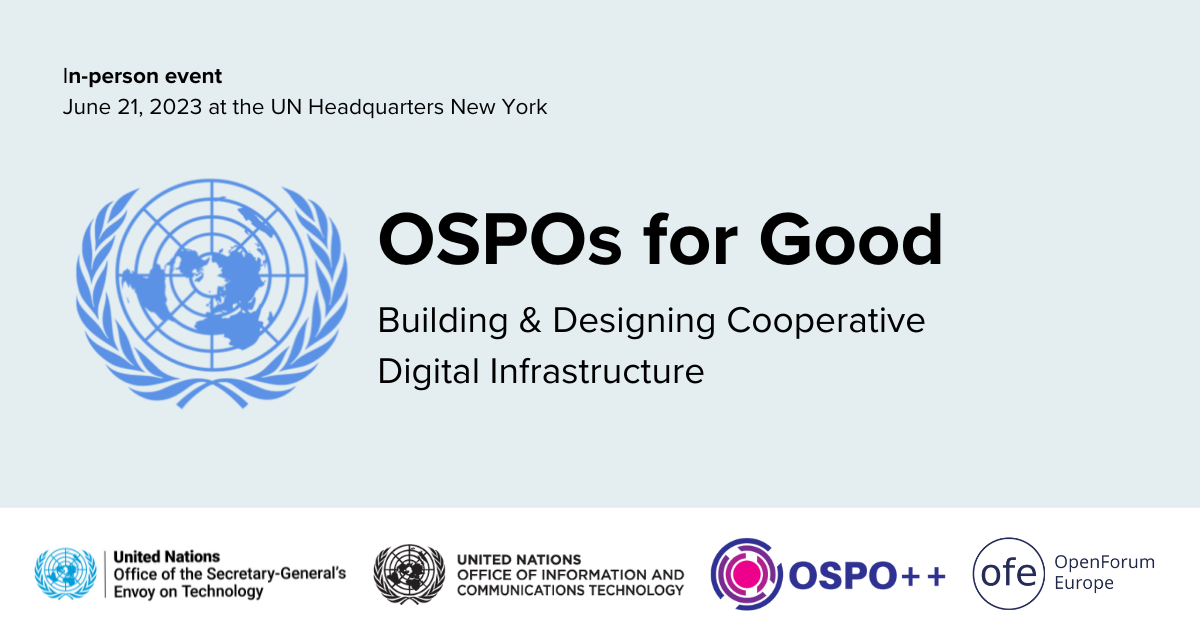
| In-person event, June 21, 2023 at the UN Headquarters New York Seats are limited, but if you are interested in joining this event, email events@openforumeurope.org. |
UN Member States are also increasingly interested in ways to better leverage open source technologies for sustainable development. Promoting open source technologies is thus critical to ensuring that technologies’ full benefits are harnessed to achieve the United Nations’ mandates, goals and perspectives.
As such, the open source ethos and culture embodies the ideals of the United Nations as it rests on openness, transparency, equality and collaboration. The open source approach comes with very low barriers to entry, allowing for ICT professionals and future generations of technologists from developed, developing as well as least-developed countries alike to collaborate with existing and new global technology communities and build strong and sustainable capacity.
Introducing this open source ethos within an organization must be a concerted effort spearheaded by Open Source Program Offices (OSPOs), which are designated bodies where open source strategies, policies and guidance are supported, shared, explained and grown inside an organization. Such offices are instrumental in establishing and executing an organization’s open source strategies, giving leaders, developers, marketers, and other staff the tools they need to make open source a success within their operations.
OSPOs are industry-proven methods of accelerating open source adoption among Governments, not-for-profit organizations and academia alike leading to an unmistakable uptick in open source thought, strategy and long-term goals and implementation at all scales globally.
Insofar as OSPOs are good for fostering an open source community, they are ineffective if siloed solely within their respective organizations. Their presence, though beneficial to the organization, still houses significant untapped potential as open source is inherently collaborative and global. OSPOs that don’t work together for a greater impact run counter to the ethos of open source. Thus, existing OSPOs must work together and build cross-border digital cooperation between organizations enabling unified progress towards realizing the open source paradigm.
Objective of the event
This action symposium aims to address the issue of wasted potential by fostering collaboration among government, academia, and industry through a novel cooperative infrastructure. The goal is to work together towards achieving positive outcomes for society. Connecting OSPOs for Good will help build on the existing model of OSPOs and extend it further to address societal challenges and create positive social, environmental, and humanitarian impact.
The event will provide education and challenges for attendees to join in building OSPOs for Good. Through panel discussions, talks, workshops, and networking sessions, the event seeks to promote the concept of OSPOs for Good, explore infrastructure opportunities, and scale up initiatives while creating a dynamic and interactive environment for meaningful exchanges and collaboration among diverse stakeholders in the open source community. Participants will also have the opportunity to practice building and designing OSPOs for Good through sample organizations and case-studies, allowing for hands-on experience and practical application of the concepts discussed during the symposium.
